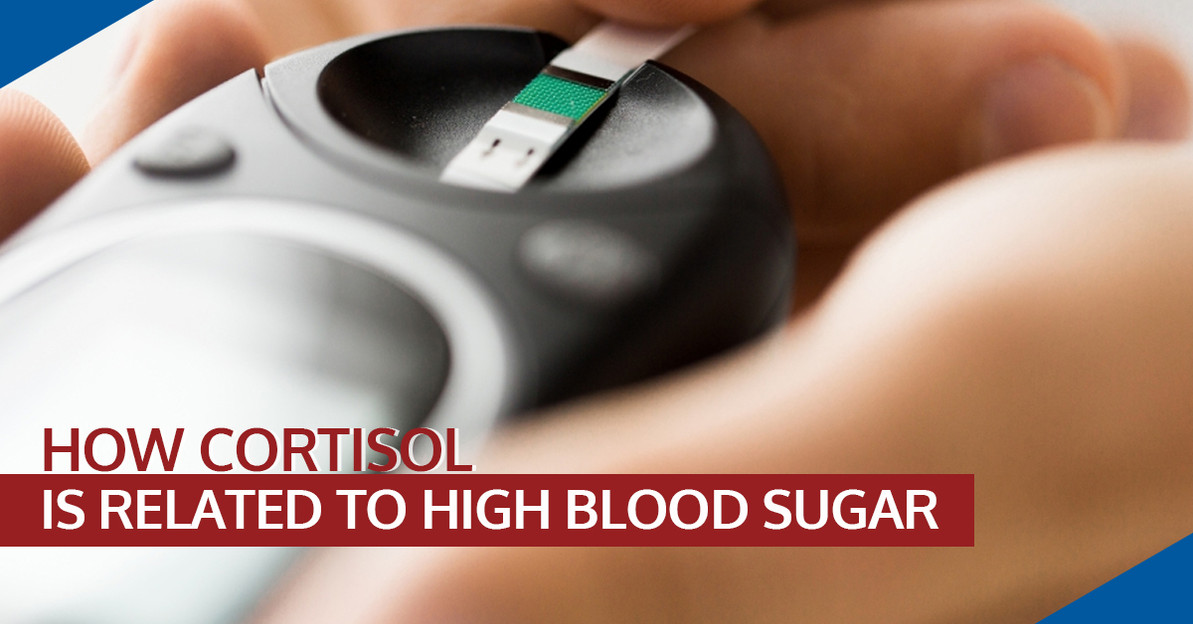How Cortisol is Related to High Blood Sugar

You may be doing all the right things to balance your blood sugar, but still missing an impactful piece.
If you struggle with diabetes, you likely have experienced the ebb and flow of unstable blood sugar levels. When your blood sugar skyrockets or dips too low, managing it can be a difficult task. Even if you are working towards better lifestyle changes that include healthy eating habits and exercise, there are still a handful of factors that can impact your blood sugar.
The Online Drugstore is your ally in blood sugar management — our online health products for blood sugar support include diabetic testing kits and nutritional supplements. Learn more about one of the major influences on your blood sugar — cortisol.
Even if you are eating all the right foods and exercising, if you are stressed, this can harm your blood sugar levels.
Cortisol — The Hormone That Directly Impacts Blood Sugar
Cortisol is a steroid hormone that is produced from cholesterol in the two adrenal glands that sit atop your kidneys. Cortisol is released upon waking, exercise, and acute stress — its effects on the body are expansive and systemic and can make it difficult for the body to come into balance (homeostasis) when it is present in high levels.
Cortisol plays a role in nutrition because it regulates energy by choosing a specific macronutrient (fat, protein, carbohydrate) in the right amount better meet the physiological demands of the body. When cortisol is chronically high, it has a negative impact on how the body functions.

The Modern-Day Fight or Flight Conundrum
Cortisol plays well with its best buddy, epinephrine. Together these two kindred compounds create what we experience as our “fight or flight” response. In this state, energy production is temporarily elevated at the expense of other bodily functions that are not needed for our imminent survival. The typical fight or flight feedback looks like:
- A stressor is presented.
- The adrenals secrete cortisol.
- Cortisol is priming the fight or flight response by flooding the body with glucose, specifically to large muscle groups.
- Cortisol inhibits the release of insulin to prevent glucose storage.
- The arteries are narrowed by cortisol and epinephrine increases the heart rate — together blood is pumping faster and harder.
- The stressor is addressed and a resolution is found.
- Hormone levels begin to normalize.
So, why is this cortisol pathway such an issue?
In prehistoric times, the fight or flight response evolved as a need for survival — running and fleeing from dangers, while in modern times, this is typically no longer needed. Instead, our stressors are less physical and more internal, experienced in our work environments and relationships. The stressors we face are very different from what our ancestors experienced as we are more concerned with clearing our inboxes or making our house payment on time. Our brains and bodies still experience these stressors as real threats. Because our bodies are hard-wired to combat stress in order to protect us from the early days of needing to outrun a predator, modern-day life poses a different context and these threats are rare, yet the physiological stress response is the same.
When our bodies perceive a threat, a signal is sent to the hypothalamus and cortisol and adrenaline are secreted to begin the cortisol fight or flight pathway we covered above.

How Cortisol Impacts Blood Sugar
As mentioned above, when we’re under stress, cortisol releases an influx of glucose — but if your stress response becomes chronic your body will continue to produce glucose and lead to elevated blood sugar levels. Cortisol also counters the effects of insulin, eventually rendering your cells insulin-resistant. In time, the pancreas cannot meet the demands of elevated glucose levels so your blood sugar remains consistently high and your body does not get the glucose and energy it needs — this is where a very detrimental cycle begins.
When you experience chronic stress, the body is impaired to regulate and balance cortisol levels — these elevated levels can also lead to inflammation in the body and suppress your immune response. Further health conditions are linked to:
- Heart issues
- Anxiety
- Digestive concerns
- Poor sleep patterns
- Weight gain
How To Manage Healthy Cortisol Levels
Stress is difficult to control, because often times, we can’t control what stresses us out. The best way to tackle stress is to develop coping mechanisms that can relax and calm your body quickly to resolve better manage cortisol levels. People have found benefits from coping mechanisms such as:
- Meditation
- Walking 30 minutes to an hour each day
- Yoga
- Getting out into nature
- Consistent exercise
- Therapy
When you are able to better manage your stress, thus cortisol levels, this will greatly impact blood sugar levels as well!
To better manage your blood sugar, search our online health products for diabetes support and nutritional supplements.
Recent Posts
-
Most Effective Medications for Different Spring Allergy Symptoms
Springtime can feel like a breath of fresh air after the biting cold of winter. But for many of us, …18th Apr 2024 -
How to Relieve Spring Allergies Naturally & Effectively
As springtime unfurls its striking colors and warmth - or at least warmer temperatures - we can look …18th Apr 2024 -
How to Avoid Getting Sick When Spring Weather Changes Arrive
As we wave goodbye to winter and cold, biting winds turn to a light, refreshing breeze, it’s only na …22nd Mar 2024




